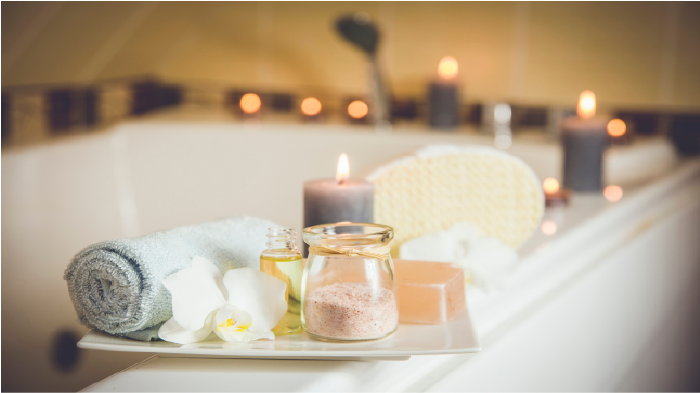Nurturing the Soul: The Transformative Power of Self Care
In the hustle and bustle of modern life, it’s easy to become overwhelmed by the demands of work, family, and social obligations, leaving little time or energy for self-care. However, prioritizing self care is essential for maintaining physical, mental, and emotional well-being, and nurturing the soul. When purchasing self care products, remember that it is an investment in your holistic well-being, allowing you to thrive and flourish.
In this comprehensive guide, we delve into the transformative power of self-care, exploring its benefits, strategies, and importance in fostering a balanced and fulfilling life.
Understanding Self Care
Definition
Self-care encompasses a broad range of activities and practices aimed at promoting physical, mental, and emotional health and well-being.
It involves taking intentional actions to nurture and nourish oneself, prioritize one’s needs, and cultivate a sense of balance, harmony, and fulfillment in life.
Types of Self Care
Self care can take many forms, including:
- Physical self care: Engaging in activities that promote physical health and vitality, such as exercise, healthy eating, adequate sleep, and regular medical check-ups.
- Emotional self care: Taking steps to manage stress, cope with difficult emotions, and cultivate resilience and emotional well-being through practices like mindfulness, meditation, journaling, and therapy.
- Mental self care: Stimulating the mind, fostering creativity, and nurturing intellectual curiosity through activities like reading, learning new skills, pursuing hobbies, and engaging in stimulating conversations.
- Social self care: Cultivating supportive relationships, setting boundaries, and spending time with loved ones who lift us up and make us feel valued, seen, and understood.
Benefits of Self Care

1. Improved Physical Health
Prioritizing self-care habits like regular exercise, nutritious eating, and adequate sleep can have profound effects on physical health, reducing the risk of chronic diseases, boosting immunity, and increasing energy levels and vitality.
2. Enhanced Mental Well-Being
Self-care practices like mindfulness, meditation, and stress management techniques can help reduce anxiety, depression, and other mental health issues, promoting emotional resilience, inner peace, and a greater sense of well-being.
3. Increased Productivity and Creativity
Taking time for self care can actually enhance productivity and creativity by replenishing mental and emotional reserves, reducing burnout and fatigue, and fostering a sense of clarity, focus, and inspiration.
4. Strengthened Relationships
Cultivating supportive relationships and setting boundaries through social self care can lead to stronger, more fulfilling connections with others, fostering a sense of belonging, connection, and community.
5. Greater Self-Awareness and Personal Growth
Engaging in self-reflection, introspection, and personal development through self care practices like journaling, therapy, and self-exploration can lead to greater self-awareness, insight, and personal growth.
Strategies for Practicing Self Care

1. Prioritize Your Needs
Take time to identify your needs and priorities, and make self care a non-negotiable part of your daily routine. Set boundaries, say no to activities or commitments that drain your energy, and prioritize activities that nourish and rejuvenate you.
2. Create a Self Care Plan
Develop a personalized self care plan that includes a variety of activities and practices tailored to your unique needs and preferences. Schedule regular self care activities into your calendar and treat them as sacred appointments with yourself.
3. Practice Mindfulness and Presence
Cultivate mindfulness and presence in your daily life by paying attention to the present moment, savoring simple pleasures, and tuning into your thoughts, feelings, and sensations without judgment or attachment.
4. Listen to Your Body
Tune into your body’s signals and cues, and honor its needs for rest, nourishment, movement, and relaxation. Practice intuitive eating, prioritize restorative sleep, and engage in activities that make you feel good physically and emotionally.
5. Set Realistic Goals
Be gentle with yourself and set realistic goals and expectations for your self care practice. Remember that self care is not about perfection or achievement but about prioritizing your well-being and honoring your needs in each moment.
6. Seek Support
Reach out to friends, family, or professionals for support and connection when needed. Surround yourself with people who uplift and support you, and don’t be afraid to ask for help when you need it.
7. Practice Self-Compassion
Be kind and compassionate toward yourself, especially during times of stress or difficulty. Practice self-compassion by treating yourself with the same warmth, understanding, and empathy that you would offer to a dear friend.
Incorporating Self-Care into Your Daily Life

1. Start Small
Begin by incorporating small, manageable self care practices into your daily routine, such as taking a few deep breaths, going for a short walk, or enjoying a cup of tea in peace and quiet.
2. Build Consistency
Consistency is key when it comes to self care, so commit to making self-care a regular part of your daily or weekly routine. Start with small, achievable goals and gradually build on them over time.
3. Practice Self-Compassion
Be gentle with yourself and practice self-compassion when you inevitably encounter setbacks or challenges along the way. Remember that self care is a journey, not a destination, and that it’s okay to take small steps forward at your own pace.
4. Experiment and Explore
Don’t be afraid to experiment with different self care practices and activities to find what works best for you. Explore new hobbies, try out different mindfulness techniques, and be open to discovering new ways of nourishing your body, mind, and soul.
5. Reflect and Adjust
Take time to reflect on your self care journey periodically and assess what’s working well and what could be improved. Be willing to adjust your self care plan as needed and continue to prioritize your well-being and self care practice.
Conclusion
Investing in self care products is a vital step towards nurturing your physical, mental, and emotional well-being. In today’s fast-paced world, it’s easy to overlook self-care amidst our hectic schedules. However, these products serve as reminders to prioritize ourselves amidst life’s demands.
By incorporating self care products into your routine, you’re actively demonstrating self-love and respect for your body and mind. Whether it’s indulging in a luxurious skincare regimen, unwinding with aromatic bath salts, or practicing mindfulness with calming essential oils, these products offer moments of solace and rejuvenation.
Moreover, prioritizing self care can have profound effects on your overall quality of life. From reducing stress and anxiety to enhancing mood and productivity, these products empower you to carve out time for self-reflection and relaxation amidst life’s chaos.